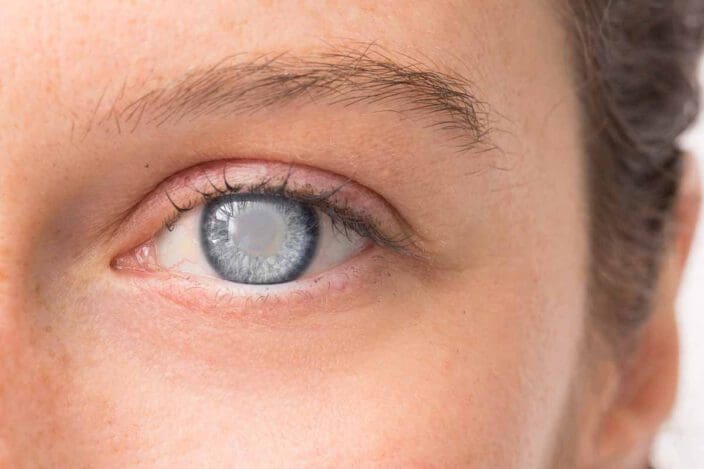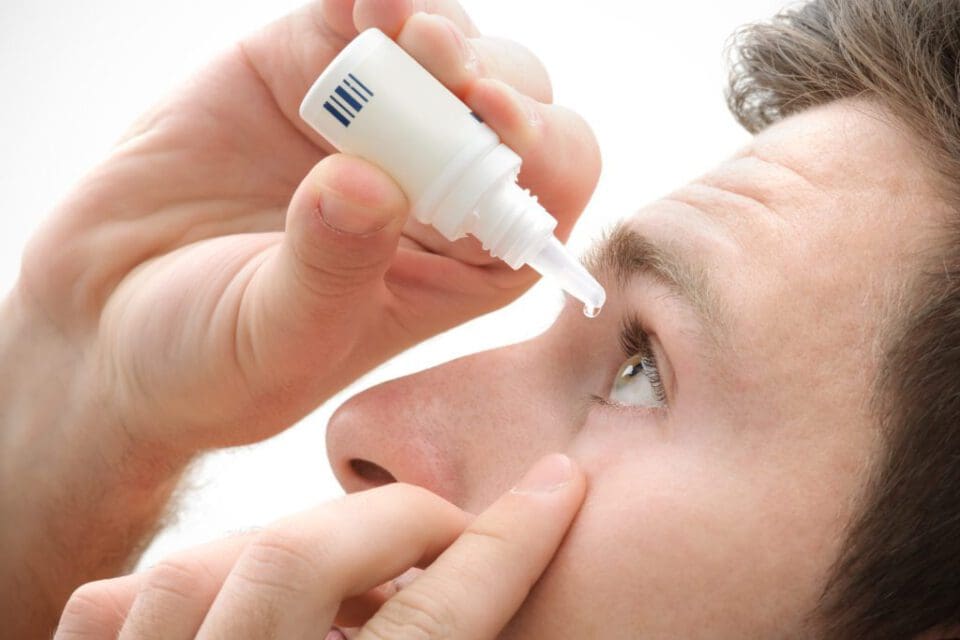Last Updated
Further Reading
- Cataracts & Your Golf Game
- Guide to Medicare Coverage
- Post-Surgery Care & Tips
- Which Lens is Best?
- PanOptix Trifocal Lenses (IOL)
- Transportation Options for Cataract Surgery
- How is Glaucoma Different?
- Dizzy Spells
- Can Cataracts Come Back?
- Identifying Cataracts
- What Happens When Left Untreated?
- Congenital Cataracts
- Stages: When to Get Treatment
- Types of Cataracts
- Insurance Coverage for Cataracts
- Can They Cause Blindness?
- Fast-Developing Cataracts
- What Is YAG Laser Capsulotomy?
How to Dissolve Cataracts Naturally?
Last Updated
While there are lifestyle choices you can make that may help prevent cataracts, there isn’t an effective way to treat cataracts naturally. Surgery is the best and only real viable way to treat cataracts.
Table of Contents
There are no nonsurgical options for removing cataracts. Nonsurgical options can, at best, mitigate the effects of cataracts, but only surgery can remove them once and for all.
You can stave cataracts off by having regular eye exams, not smoking, and protecting your eyes. But you can’t completely prevent them since they are often a natural part of the aging process. Without surgical treatment, cataracts can cloud your sight to the point of completely losing your vision.

Can You Treat Cataracts Without Surgery?
No, not effectively.
Some research has been conducted on the topic of whether cataracts can be addressed without the need for surgery. For example, a 2015 paper published in the Science journal discussed Compound 29, a water-soluble compound that showed some success in reversing the effects of cataracts related to genes and age, in human lens tissue that was removed during cataract surgery. Further studies on mice, however, unearthed limitations on whether Compound 29 could be used on humans.
Similarly, another compound called lanosterol has been floated as a potential nonsurgical solution to cataracts, but testing has found that lanosterol is insufficiently water-soluble to be dispensed in an eye drop solution.

Even scientists who are studying nonsurgical options for treating cataracts warn that their results, though encouraging, are not enough to swing the pendulum of the current standard of care for cataract treatment (surgery) in another direction.
Additionally, those scientists also concede that while there should be investigations into nonsurgical options for cataract treatment, surgery is still a very good option for most patients. The procedure is straightforward, and the implantation of the intraocular lens means that patients will never have cataracts again and could also have better vision than they did before the surgery if they opt for a lens that corrects refractive errors.
Prevention of Cataracts
Do natural cures for cataracts exist? While there is no natural “cure” for cataracts, and the development of cataracts is inevitable for most people, ophthalmologists note that there are beneficial lifestyle practices that can slow the onset of cataracts or mitigate their effects.
Eye Exams
Get regular eye exams to detect cataracts early and treat them before they become a significant problem.
Healthy Lifestyle Changes
Heavy alcohol use and smoking can increase the chances of developing cataracts, so cutting down on unhealthy activities can delay the development of cataracts.
A diet rich in vitamins and minerals has been found to reduce the risk of developing cataracts, so aim to eat more fruits and vegetables.
Eye Protection
Exposure to ultraviolet light can lead to the formation of cataracts, so protect your eyes by avoiding harsh lighting and wearing sunglasses that guard against UV rays.
Prescription Medication
Certain prescription medications may affect the likelihood of developing cataracts. Talk with your doctor if you meet any criteria for increased cataract risk and if you are taking any medication or need to switch medicines.
Can Natural Products ‘Cure’ Cataracts?
There are no eye drops that can cure cataracts. Doctors and researchers are looking at different proteins that, if they penetrate the cornea, can be used to break up cataracts so they do not obscure vision. However, these methods are still in their hypothetical stage, and to date, the only accepted and vetted treatment for cataracts remains surgery.
Some websites may claim that their naturopathic products can slow the progression of cataracts, but no peer-reviewed studies have found evidence that cataracts, once formed, can be slowed.
Here are a few of the most commonly supposed natural remedies and why they should not be seen as cures:
- Vitamin supplements: Certain vitamins like vitamin C and E are said to help prevent the formation of cataracts because of their antioxidant properties. While a healthy diet with these vitamins is generally good for overall health, there’s insufficient evidence to suggest that they can reverse or slow down cataract progression.
- Bilberry extract: Bilberry, a relative of the blueberry, has been touted for its eye benefits, particularly for cataracts and night vision. The fruit is rich in antioxidants which are thought to protect the lens. But again, there’s no scientific evidence supporting bilberry extract as an effective treatment for cataracts.
- Alpha lipoic acid: Alpha lipoic acid is an antioxidant that’s sometimes recommended for a variety of eye-related conditions, including cataracts. While antioxidants can be beneficial to eye health in general, no clinical trials have definitively demonstrated their efficacy in treating or reversing cataracts.
- Eyebright: Eyebright (Euphrasia officinalis) is a plant that’s often used in homeopathic remedies for eye conditions, including cataracts. There is currently no scientific evidence supporting its use for cataract treatment.
- Castor oil eye drops: Some proponents of natural healing recommend the use of castor oil eye drops to treat cataracts. While it’s true that castor oil has anti-inflammatory properties, there’s no clinical evidence that it can treat cataracts. Moreover, using castor oil eye drops without medical supervision can lead to side effects like blurred vision and eye discomfort.
- Green tea: The antioxidants in green tea, particularly a type of flavonoid called catechins, are believed to help protect the lens of the eye. But while a diet rich in antioxidants may generally be good for overall health, drinking green tea alone will not reverse or prevent cataracts.
In general, a balanced diet and a healthy lifestyle may help slow the progression of cataracts, but it is not likely to prevent or reverse them completely. The most effective treatment for cataracts is surgery, where the clouded lens is replaced with an artificial one. Anyone experiencing vision problems should consult an eye care professional for diagnosis and treatment.
The healthy lifestyle changes described above can stave off the formation of cataracts, but cataracts are a natural problem that comes with age and genetics, and there is a degree to which they may be inevitable.
What if I Don’t Do Anything?
Cataracts are a natural occurrence, and their formation does not mean that you have a serious eye condition. However, in most cases, untreated cataracts will get worse and gradually impede the ability to perform daily and important tasks.
For most patients, not treating their cataracts could culminate in becoming legally blind, or even totally blind, because the reduction in their vision will increase over time. Untreated cataracts can also become hyper-mature, which means that an otherwise straightforward cataract surgery may not be able to remove them. Hyper-mature cataracts can also cause complications during surgery, so it is in your best interest to get cataract surgery sooner rather than later.
Generally, your eye doctor will monitor the progression of your cataract and inform you when surgery is needed.
Surgery as the Standard
Untreated cataracts can cause blindness, and this blindness can be reversed. Surgery and the implantation of an intraocular lens can restore sight to someone who has lost their vision because of untreated cataracts.
Again, this is not a straightforward procedure at this point. Removing cataracts after they have become hyper-mature to the point of causing blindness is difficult, and it comes with higher complication rates than if cataracts are removed in their early stages.
The most effective way to deal with cataracts is to get surgery for them before they cause any significant loss of vision. Cataract surgery is quick and safe, and the implantation of an intraocular lens means that you will never have to worry about cataracts on that lens again.
References
- Pharmacological Chaperone for α-Crystallin Partially Restores Transparency In Cataract Models. (November 2015). Science.
- What Are Cataracts? (September 2022). American Academy of Ophthalmology.
- Oxysterol Compounds in Mouse Mutant αA- and αB-Crystallin Lenses Can Improve the Optical Properties of the Lens. (May 2022). Investigative Ophthalmology and Visual Science.
- Genetics Study Points Toward Eyedrop Treatment for Cataracts. (July 2015). Los Angeles Times.
- Influence of Tobacco Use on Cataract Development. (November 2006). British Journal of Ophthalmology.
- Cataracts Are Inevitable, but Fixable. (March 2015). Toronto Star.
- Complications of Hypermature Cataract: Spontaneous Absorption of Lens Material and Phacolytic Glaucoma-Associated Retinal Perivasculitis. (1988). Japanese Journal of Ophthalmology.
- Optimization of Cataract Surgery Follow-up: A Standard Set of Questions Can Predict Unexpected Management Changes At Postoperative Week One. (September 2019). PLOS ONE.
- Advances in Pharmacotherapy of Cataracts. (November 2020). Annals of Translational Medicine.
- Failure of Oxysterols Such as Lanosterol to Restore Lens Clarity from Cataracts. (June 2019). Scientific Reports.
The information provided on this page should not be used in place of information provided by a doctor or specialist. To learn more, read our Privacy Policy and Editorial Policy pages.
Further Reading
- Cataracts & Your Golf Game
- Guide to Medicare Coverage
- Post-Surgery Care & Tips
- Which Lens is Best?
- PanOptix Trifocal Lenses (IOL)
- Transportation Options for Cataract Surgery
- How is Glaucoma Different?
- Dizzy Spells
- Can Cataracts Come Back?
- Identifying Cataracts
- What Happens When Left Untreated?
- Congenital Cataracts
- Stages: When to Get Treatment
- Types of Cataracts
- Insurance Coverage for Cataracts
- Can They Cause Blindness?
- Fast-Developing Cataracts
- What Is YAG Laser Capsulotomy?